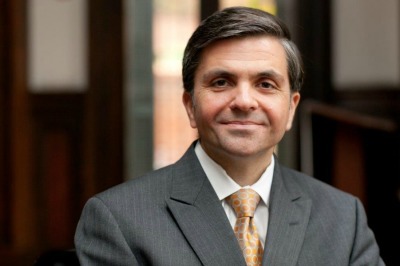Christians Shouldn't Be Pacifists, Christian National Security Experts Claim; Unveil New Foreign Policy Declaration
WASHINGTON — Dozens of Christian scholars and theologians have signed a joint declaration on American foreign policy in a scholarly journal that outlines a thoughtful, distinctly Christian vision for engaging world affairs.

A crowd of approximately 75 gathered at Washington's Mayflower Hotel to hear several Christian national experts speak on this declaration including former National Security Council staffers Paul Miller and Mary Habeck, and University of Virginia political scientist John Owen.
Given prominence in the discussion was the evangelical political witness as it relates to foreign affairs.
Published in Providence: A Journal of Christianity & American Foreign Policy, the declaration does not claim to speak infallibly or for all Christians but aims to apply biblical principles to complex subjects like America's role in the world, the use of military force, and the preservation of a stable international peace and political order. The panelists acknowledged that many Christians struggle to know how to speak to these issues with clarity, particularly in light of recent American foreign policy.
"Young evangelicals are prone to a neo-Libertarian isolationism, pessimistic that America has any major constructive role in sustaining global order," said Mark Tooley, president of The Institute on Religion and Democracy, who hosted the panel discussion Wednesday.
"The young and the comfortable in today's America too often assume their security and ease are the human historical norm. They don't know that war, genocide, tyranny, extreme poverty, and oppression are far more common to the human experience," he continued. "Today's evangelical pacifists and isolationists are partly a reaction against past evangelical and Protestant failure effectively, if at all, to articulate historic Christian ethical teaching about God's purpose for nations and governments."
Because some sincere pacifist Christians wonder how the use of military force can be squared with the "red letters," Christ's teaching in the gospels, The Christian Post asked the panel to speak to the challenge of bringing such convictions to bear on something as complicated as foreign policy.
Providence Managing Editor Marc LiVecche, who moderated the panel discussion, offered that when it comes to thinking about foreign policy the Bible has more to say than just Jesus' red letters.
"If you start from the beginning and go through Genesis and our human responsibilities, made in the image of God to exercise dominion — which is care, providential care not incidentally — over creation, that what you're going to find as you work through the Psalms and the poetry of the Apocalypse, and the Epistles," LiVecche said.
"If you take a comprehensive picture of Scripture, what you're going to end up with is a portrait of Jesus that is an example of not pacifism."
While acknowledging the complexity and theological differences surrounding the issue, Livecche intoned, "I don't believe the words of Christ are limited to the red letters, you don't see anybody in scripture talking about hell more than Jesus. You don't see anybody in Scripture resenting evil, which is a retributive response about what it not right in the world more than Jesus."
Furthermore, he added, Christians have mistaken what love is.
"I think we believe that love is simply desiring other people's happiness. I think we think happiness is some sort of gassy pleasure rather than something that allows for genuine human flourishing," he said.
In the declaration the Providence editors write: "We believe much more than American security is at stake. Free nations are more secure in a world of ordered liberty. All nations can and should join in the collective effort to accountable governance, free entrepreneurship, and mutual security. The United States and its allies have, for much of the last century, helped foster these ideals around the world — and we believe they should continue to do so for the foreseeable future."
Providence is sponsored by The Institution on Religion and Democracy, The Philos Project, and The King's College — New York City.




























